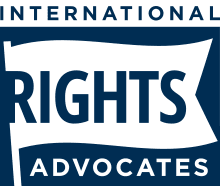
http://www.iradvocates.org/press-release/nestle/press-release-child-slav...
These companies have a long history of violating the law and participating in a venture in Cote D’Ivoire that relies upon child slaves to produce cheap cocoa. In 2001, they signed the “Harkin-Engle Protocol” in which they explicitly promised consumers and regulators they would stop using child labor by 2005. Instead, they have given themselves numerous unilateral extensions of time and now claim that by 2025 they will reduce by 70% their reliance on child labor. Rather than make progress, their use of child labor is actually getting worse. In late 2020, a study by NORC at the University of Chicago and funded by the U.S. Department of Labor concluded that 1.56 million child laborers were working in cocoa growing areas of Côte d’Ivoire and Ghana in the 2018/19 growing season, an increase of 14 percent since a 2015 study, and 1.48 million child laborers engaged in hazardous work during this period
Terry Collingsworth, Executive Director of IRAdvocates, which represents the eight Malian Plaintiffs, stated “By giving themselves this series of extensions, these companies are admitting they ARE using child slaves and will continue to do so until they decide it’s in their interests to stop. Based on the objective record of twenty years of the failed Harkin-Engle Protocol, these companies will continue to profit from child slavery until they are forced to stop. The purpose of this lawsuit is to force them to stop. Enough is enough! Allowing the enslavement of African children in 2021 to harvest cocoa for major multinational companies is outrageous and must end.”
The case filed today is based primarily on the Trafficking Victims Protection Reauthorization Act (“TVPRA”), 18 U.S.C. § 1595 et. seq. This law allows victims of trafficking and forced labor to sue companies that participate in a “venture” and benefit from the trafficking or forced labor. The named Defendant companies have been cooperating in a venture for decades as they collaborate in a scheme to continue using child slaves while jointly promoting bogus programs they falsely claim are solving their child labor problem. They benefit by continuing to profit from selling cheap cocoa harvested by child slaves, including the eight Plaintiffs who filed this case. The TVPRA makes the companies jointly liable for child slavery on behalf of the “venture.”
IRAdvocates also filed a case on behalf of six former child slaves against Nestle and Cargill under the Alien Tort Statute (ATS), 28 U.S.C. § 1350, in 2005. The case is still pending and was argued in the Supreme Court on December 1, 2020. The companies argued they are immune from liability for child slavery under international law. Collingsworth commented, “in filing this new case we want these companies to know we will use every possible legal tool available to make them stop abusing child slaves. We call upon the companies to work with us solve this problem, rather than spend millions in legal fees to fight an uncontestable fact – the cocoa industry is dependent upon child labor. ”
The full complaint of the new TVPRA case as well as information about the ATS case are available at www.IRAdvocates.com. Here is an article detailing the situation the cocoa slaves endure: https://www.justsecurity.org/73959/nestle-cargill-v-doe-series-meet-the-...











Add new comment